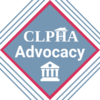Public housing residents are not only economically disenfranchised, but also experience higher rates of chronic conditions and diagnoses such as heart disease, diabetes, asthma, and anxiety/depression. PHAs and their health partners can improve low-income people’s health and wellbeing by enhancing built environments, providing preventative health resources, and increasing access to healthcare services.
- PHAs have led numerous efforts to improve environmental health for their residents. From improving safety of built environments through renovation and new construction to the formation of cross-system partnerships that help residents increase physical activity and improve nutrition, PHAs consider health and wellness top priorities.
- Older adults and people with disabilities comprise more than half of Americans in public housing. PHAs carefully design innovative ways to serve the varied needs of the elderly through collaborative programming, dedicated staffing, and accessible design.
- Most HUD-assisted households rely on Medicaid for basic healthcare. PHAs are increasingly working with health system partners like Medicaid agencies and managed care organizations to better align the provision of housing assistance and healthcare service delivery.
Please contact CLPHA’s Health Research & Policy Manager Camille Anoll-Hunter (canoll@clpha.org) with inquiries about our housing and education work.
UnitedHealthcare Introduces First-of-its-Kind Community-Based Collaborative to Improve Health Outcomes and Equity

Data-driven ”Community Catalyst” initiative in 23 communities convenes partners across sectors to identify and address community and population health needs; 10 of the initiatives are focused on public housing authority partnerships

Strategize, Start, Sustain The Evolution of PHA Health Initiatives
PHAs are taking their role in public health seriously. Stable, healthy housing is a central social determinant of health as stable housing at the individual and community level often drives health outcomes.
Public housing authorities (PHAs) serve the housing needs of the nation’s lowest income families with public housing and housing vouchers. Given this mission, PHAs are positioned to impact the health and well-being of nearly one-quarter of low-income individuals, many of whom were formerly homeless or otherwise experienced housing instability. Moreover, PHAs house two-fifths of low-income older adults and 2.5 million low-income individuals with disabilities, populations which have grown substantially as a portion of PHA residents over the past decade and have higher health needs . PHAs are increasingly identifying resident health as a critical component of carrying out their mission and they are uniquely situated to support residents in this way.
Over half of PHAs surveyed are engaged in resident health initiatives, and have a multitude of cross-sector partners with at variety of strategic goals. To better understand how PHAs have built, grown, and sustained these efforts, we conducted a qualitative study with the Public & Affordable Housing Research Corporation (PAHRC) examining the evolution of PHAs’ health initiatives and ways PHAs incorporate health into their organizational priorities and activities.
